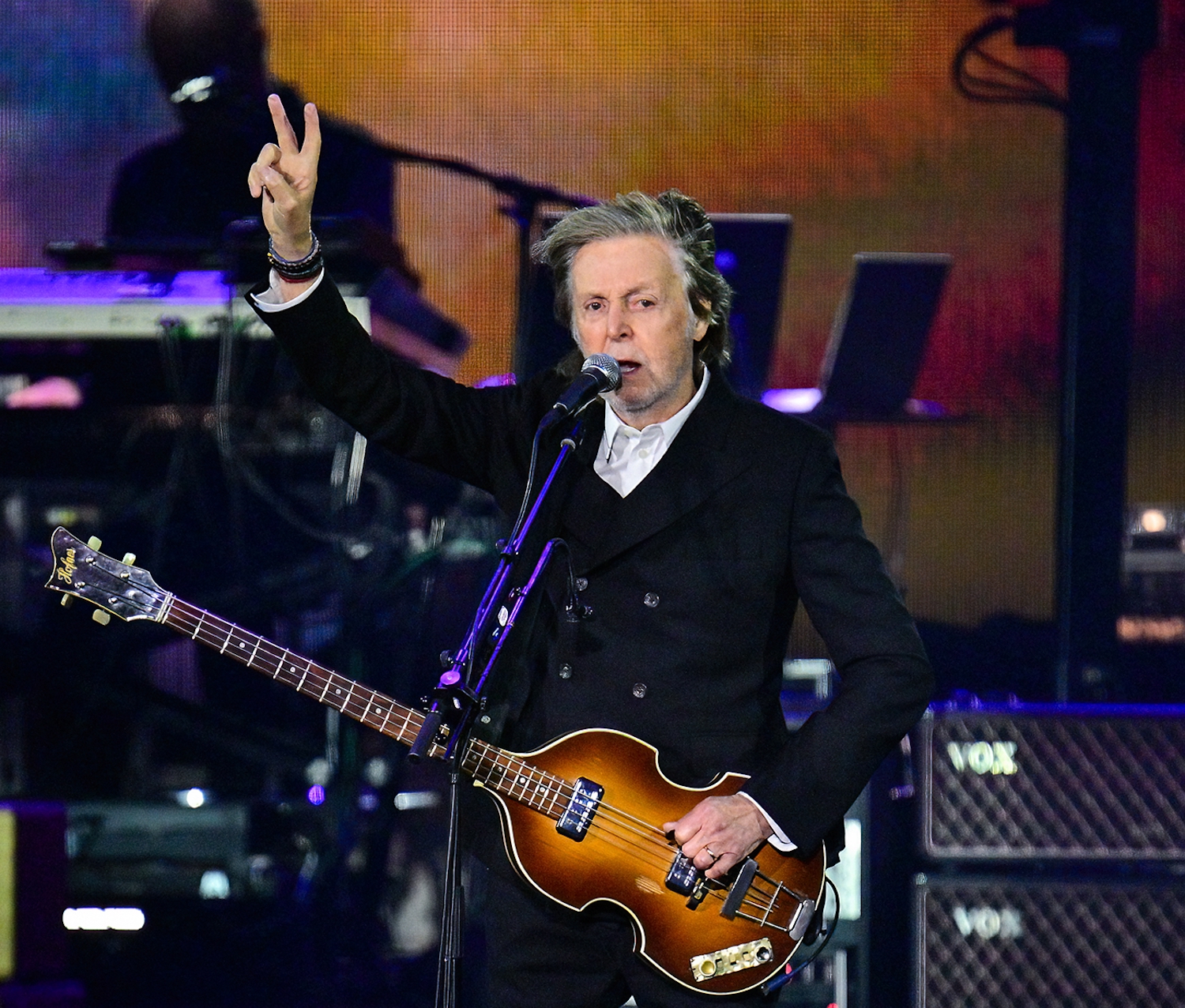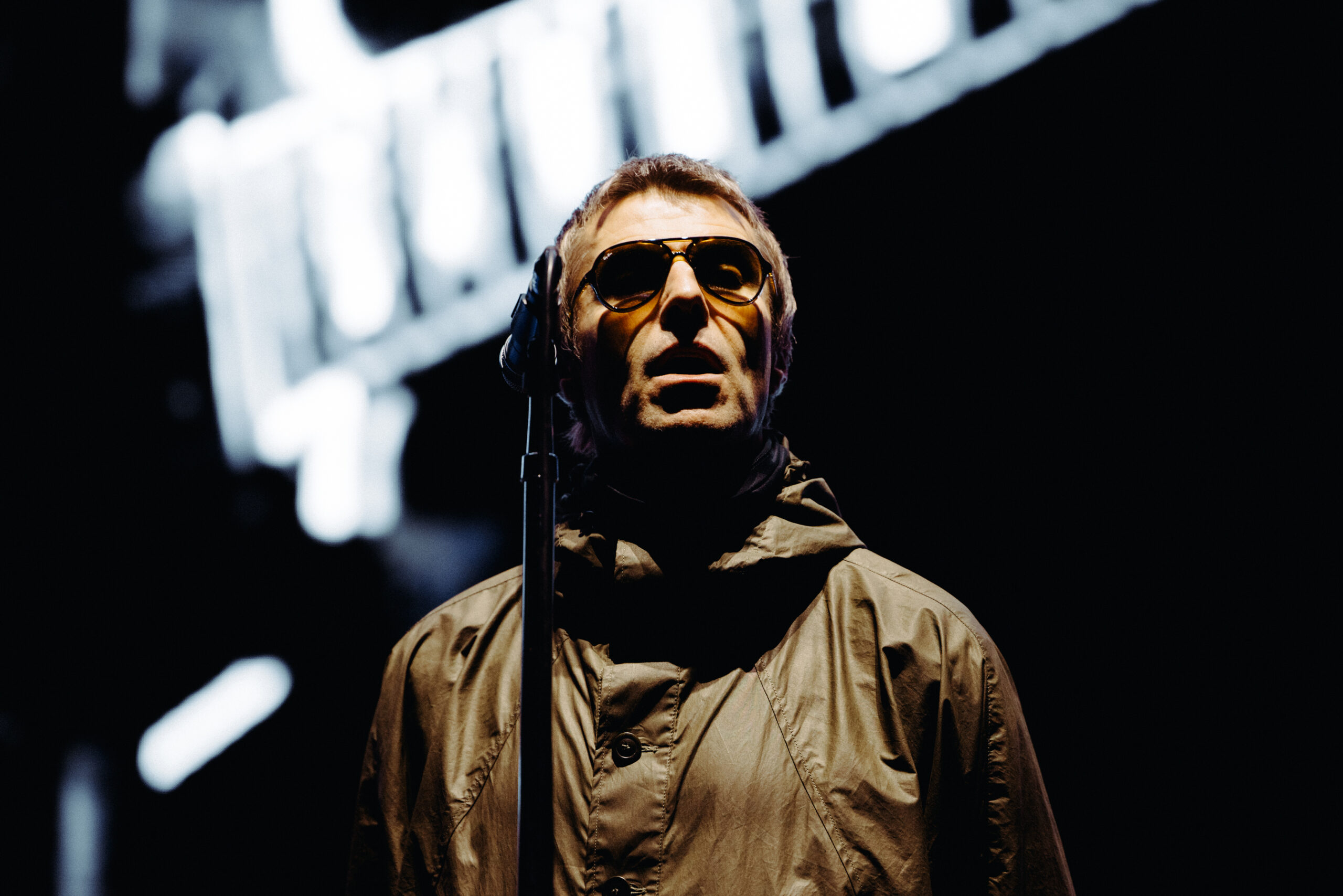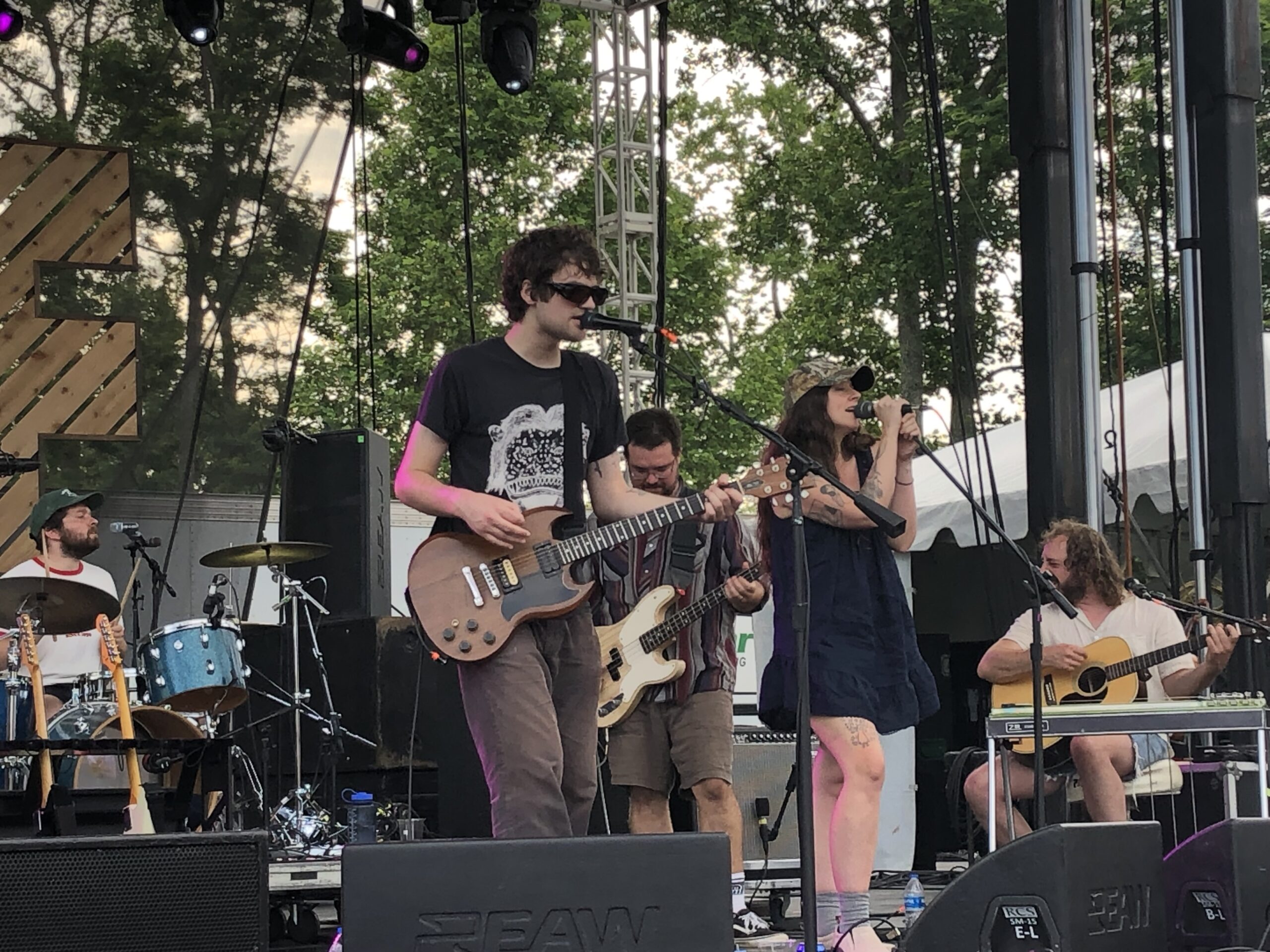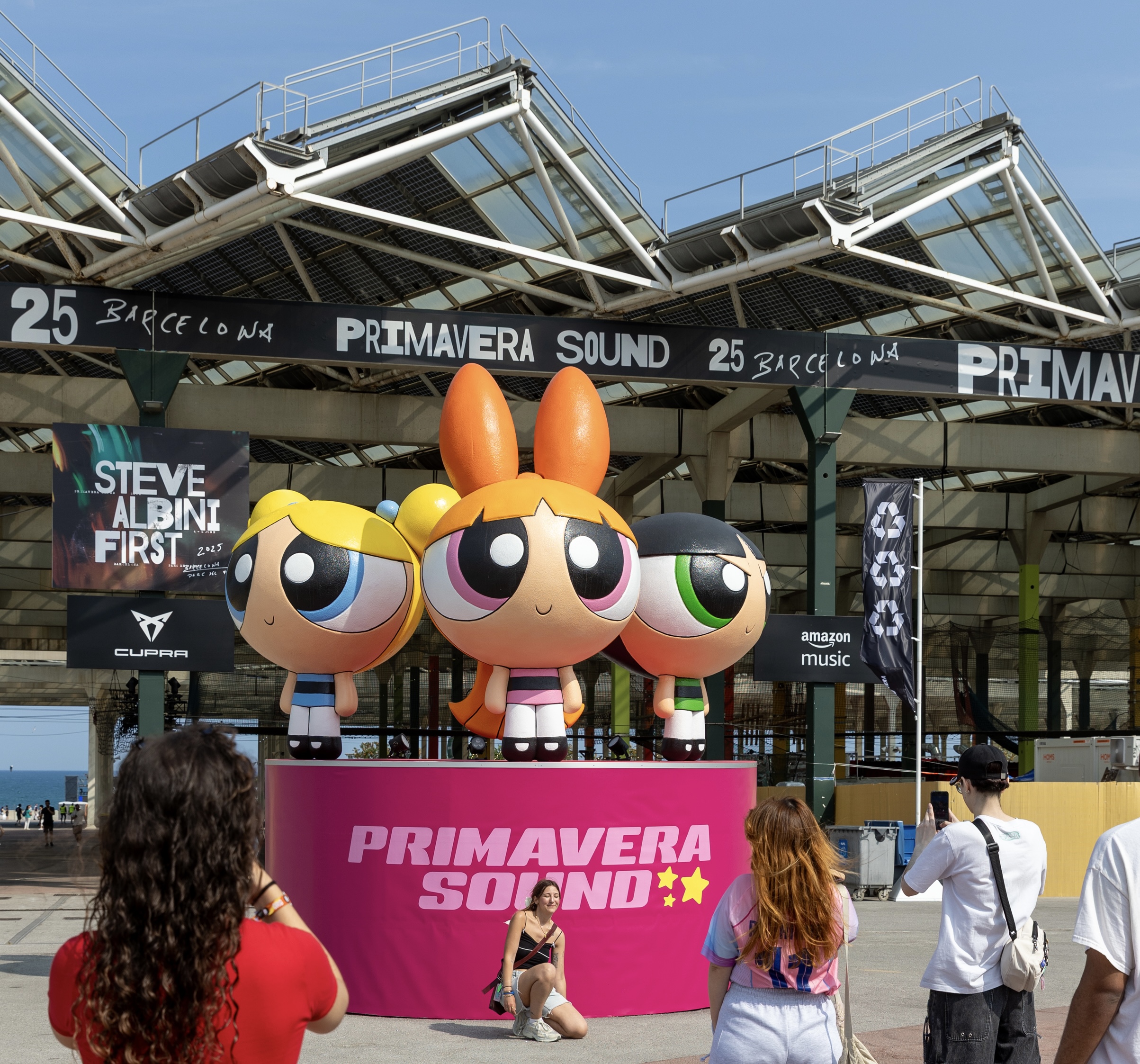Like most festivals, Iceland Airwaves made its real deal return in 2022. After an attempted comeback in 2021 was curtailed by ongoing COVID concerns, this year marked the festival scaling back up its normal size -- a few nights spread amongst venues across Reykjavik, showcasing Icelandic artists alongside international talent, sold out in a city already thronged with tourists.
At the same time, it was one of the smaller iterations of Airwaves. Over the years, the festival has repeatedly expanded and contracted, with some installments having headliners like the Flaming Lips and others focusing on emerging acts from across the world and the local scene, leaning more on discovery. The 2022 version of Airwaves trended towards the latter, eschewing some of the bigger productions of past years for lots of packed, sweaty club gigs.
At this point, there are certain Icelandic acts that are a core, recurring part of the Airwaves experience, and that didn’t change in 2022. On the festival’s first night, Kaktus Einarsson brought his 2020 solo material to Gamla Bíó. When I first started coming to Airwaves, in 2014, Einarsson’s band Fufanu were young post-punk upstarts. Years later, he reappeared with a large band that carried him through wiry, shape-shifting songs that often showcased a mellower side of his songwriting.
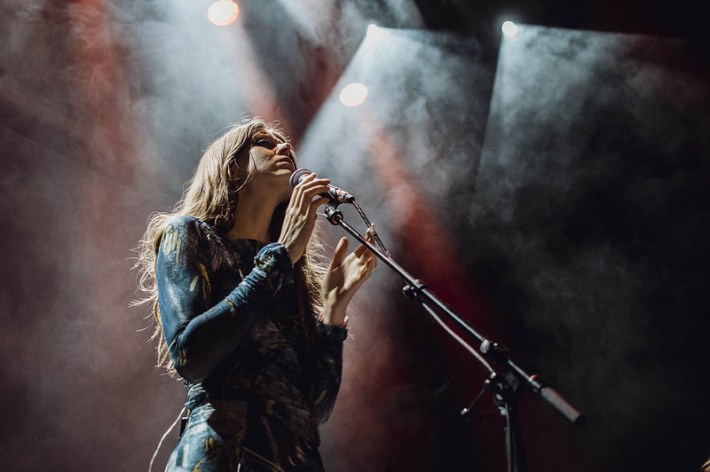
Later that night, JFDR took the same stage. With some project or another, Jófríður Ákadóttir has been playing Airwaves since she was a teenager. In more recent years, JFDR has become one of the fixtures of the festival. Backed by string players and synths, her performance was as vulnerable and transporting as ever. Both Einarsson and JFDR felt like artists that had put in their time and grown into representatives for the Icelandic scene, with each having also performed stripped back sets at a pre-festival show the preceding night; the same could be said of Daughters Of Reykjavik, who also played down the street at the Art Museum on the festival’s official opening night.
Einarsson and JFDR bookended a performance from Nation Of Language — a Stereogum Band To Watch from back when they were essentially a local Brooklyn band, now touring sold out venues across Europe. The more indie-level character of the festival this year meant NOL felt like one of the major international events, and they rose to the occasion. In the last year, their show has successfully moved from tiny New York venues to a hall like Gamla Bíó, with fan favorites like “Across That Fine Line” and “The Wall & I” booming through the room and inciting a dance party.
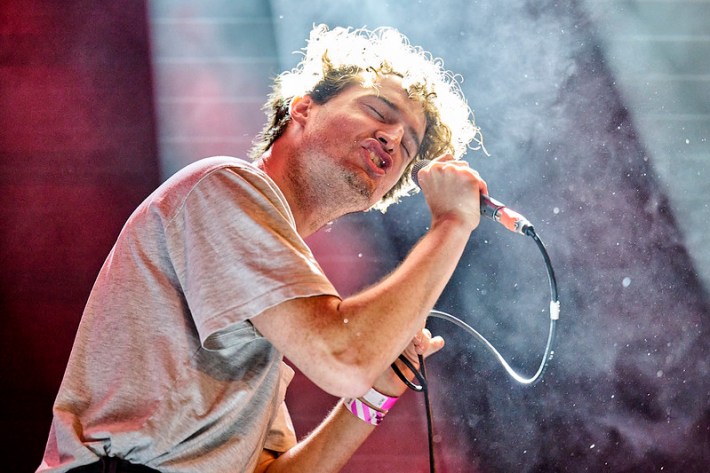
Another young band you might be familiar with from this site, Francis Of Delirium, proved to be one of the most impressive revelations of the whole weekend. First with a set at Gamla Bíó early in the evening on Friday, then again at Iðnó on Saturday, the Luxembourg group brought a heavier, grungier interpretation of their early material to Iceland. These were visceral, invigorating performances, some of the best of Airwaves 2022 — and a promising glimpse of whatever Francis might pursue on their debut album.
On Friday, there was a whole lot more to check out, feeling like perhaps the most frenetic night. Way back in 2015, I saw Fufanu guitarist Gulli Einarsson play in his other band, Russian.Girls — I remember those sets as drone-y, druggy rock music. This year they packed out the club Húrra, and have become a very different band — trippy, electronic, with a vocalist murmuring over burbling beats. Upstairs at Gaukurinn, the Icelandic group Sucks To Be You, Nigel ran through a spindly, shambolic rock set, followed by Finland’s Antti Paalenen implausibly rousing the room into singalongs in his native language over accordion and electronic beats. After a quick detour back to Gamla Bíó for Canadian indie rockers Chiiild and their surprising mid-set cover of Seal’s “Crazy,” the night ended back at Iðnó. There, Janus Rasmussen — who is also part of the duo Kiasmos with Icelandic artist Ólafur Arnalds — headlined a showcase of artists from the Faroe Islands, closing the night with moody yet propulsive electronic music that served as a transfixing final statement on Friday night.

On Saturday, Brighton’s Porridge Radio brought their cathartic, dreamy rock to Gamla Bíó, while their fellow Brit Arlo Parks filled the Art Museum with a majestic, beautiful set; Parks felt like one of the big headliners of the weekend, and her set was mesmerizing. It would’ve been an appropriate conclusion for the weekend, but first I swung back by Húrra, where Gulli Einarsson’s other band Skrattar were charging through a cacophonous, gleefully chaotic set as Saturday night drew to a close. You have to buy into this sort of thing — they’re kind of like an Icelandic Viagra Boys, embracing the scuzziest and nastiest version of a swaggering punk-inflected rock. But if you were onboard with that, they were one of my favorite new Icelandic acts I’d seen since my earlier years at the festival.
In a sense, Skrattar actually turned out to be the perfect way to wrap up Airwaves 2022 — smaller, scrappier, stumbling upon acts you’d never heard of before and being blown away. (I heard similar gushing about the Irish group Thumper upstairs at Gaukurinn at the same time.) Anyone who’s been going to Airwaves long enough across its now 20-plus year history will tell you there were a lot of special years that were structured like this, wandering through the night with too much abundance of unknown music. It had been a long wait to come back, and unlike some of the more traditionally structured big field festivals that struggled to deliver after their pandemic hiatus, Airwaves 2022 felt just right.

